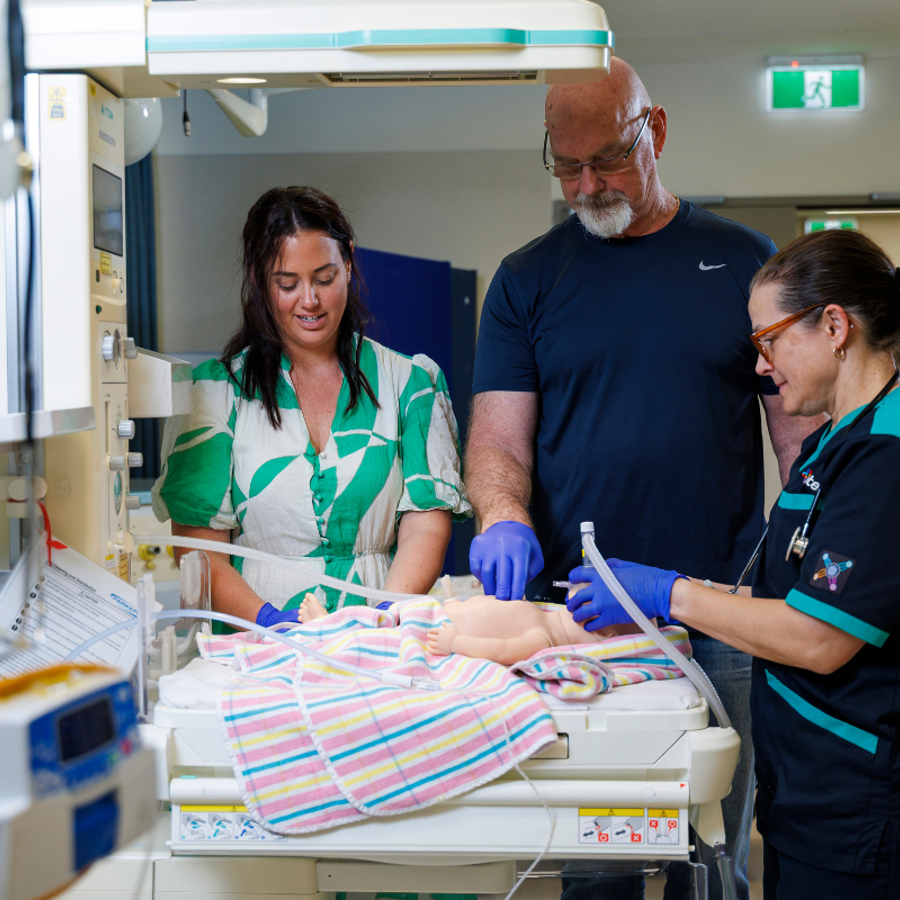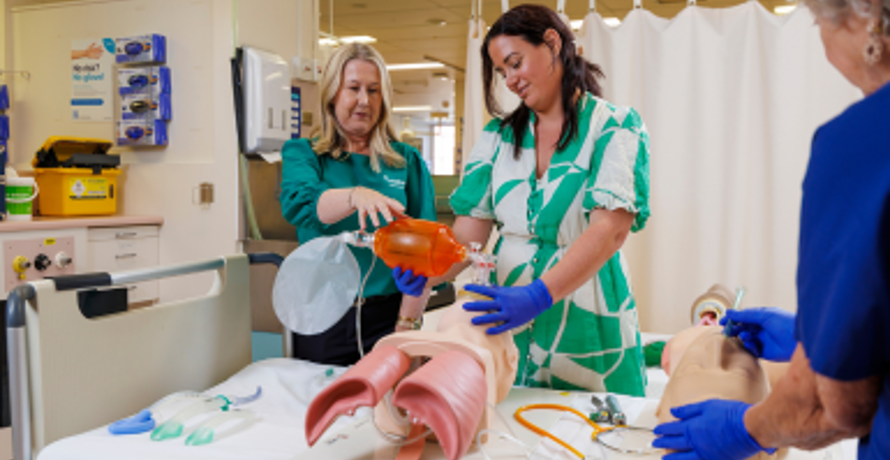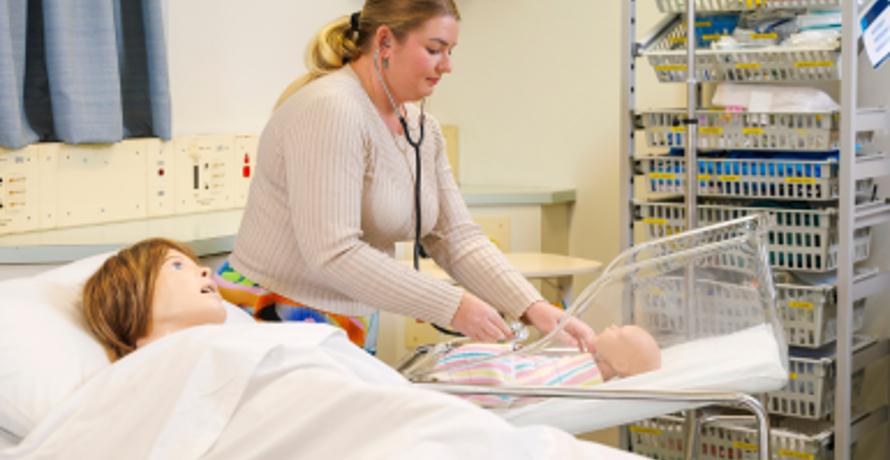Neonatal Resuscitation
NeoResus
Competency in neonatal resuscitation is critical in delivery rooms, neonatology units and paediatrics intensive care units to ensure the safety and health of neonates.
Mater Education's NeoResus program is a specialised training program designed to arm healthcare professionals with effective newborn resuscitation skills and the confidence to manage scenarios of perinatal asphyxia. Under the tutelage of our team of expert instructors, participants will be immersed in a medical simulation training environment to build their evidence-based skills in assessment, intervention and crisis resource management.
The program is designed with participants of varying levels of experience in newborn resuscitation in mind. On completion of the program successful participants will be able to demonstrate the following:
- steps of assessment of a newborn baby after birth
- determining a baby’s requirement for assistance to establish and maintaining effective breathing
- assisting a baby to breathe using a variety of positive pressure ventilation devices
- administering external chest compressions in cases where initial resuscitation measures fail to restore adequate circulation
- endotracheal intubation and strapping
- establishing vascular access during a resuscitation at birth
- administration of drugs and volume expanders during newborn resuscitation.
Our team of educators can build bespoke offerings of this course to suit you and your team's needs. Contact us to learn more.

Who should attend?
Our Neoresus training program has been designed for the range of clinicians and medical professionals working in the field of neonatal care. This includes neonatal trainees, paediatricians, obstetricians, anaesthetists, paramedics and nurses.
Course information
-
Skills and knowledge developed during this course:
- Initial steps of assessment of a newborn baby after birth
- Determining a baby’s requirement for assistance to establish and maintain effective breathing
- Assisting the baby to breathe using a variety of positive pressure ventilation devices
- Providing external chest compressions if initial resuscitation measures fail to restore adequate circulation
- Endotracheal intubation and strapping
- Establishing vascular access during a resuscitation at birth
- Administration of drugs and volume expanders during newborn resuscitation
-
Duration
8am - 4.30pm
NeoResus is a one-day day program (seven contact hours) including lectures, skill-stations and simulation-based scenarios. This program also has pre-course requirements including three to four hours of pre-reading and both a pre- and post-course quiz which must be completed to obtain a certificate of completion.Cost
$550 (incl. GST)
Includes lunch and refreshmentsCancellation and refund policy
Related courses
-
 BrisbaneOne day
BrisbaneOne dayAdvanced Life Support
Advanced Life Support training arms clinicians with the skills they need to provide urgent treatment when faced with cardiac emergencies such as cardiac arrest, stroke, and myocardial infarction.
-
 BrisbaneSix and a half hours
BrisbaneSix and a half hoursBasic Obstetric Skills Stations
Basic Obstetric Skills Stations (BOSS) harnesses Mater Education’s expertise in simulation training, giving you the opportunity to step through a number of common obstetric procedures and get a head start on your skills development.

